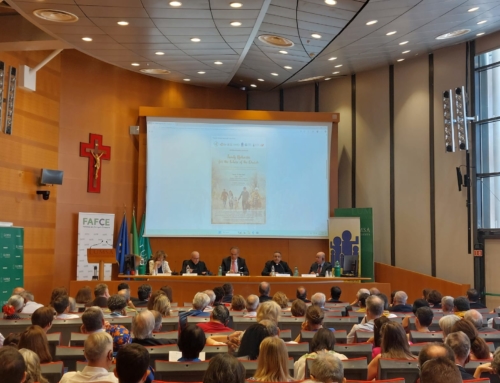Brussels, 6 January 2022
The French Presidency of the Council of the European Union started on the first of January 2022, and will last until June 2022.
It is the fourth time France takes the President of the Council, a role that aims at “driving forward the Council’s work on EU legislation, ensuring the continuity of the EU agenda, orderly legislative processes and cooperation among member states. To do this, the presidency must act as an honest and neutral broker.” (EU official website).
The French government published its six-month programme, entitled “Recovery, Strength and a Sense of Belonging” (in French: Relance, Puissance, Appartenance), which develops three main ambitions:
- A more sovereign Europe: strengthening the Schengen area, increasing the fields of security and defence, and investing the prosperity and stability of EU neighbours;
- A new European model for growth: improving the European production, innovation and growth, with an attention to quality job creation, the climate goals and the digital world;
- A humane Europe: listening to the European citizens through the Conference on the Future of Europe, and defending the rule of law, the values and the culture of Europe.
The programme includes very few elements directly related to the concerns of European families, such as the mention of the challenges of brain drain in rural areas and for the youth employment since the start of the pandemic.
Social and territorial cohesion in the EU
“Through the informal ministerial meeting to be held on 1 March 2022, the Presidency hopes to promote a long-term European vision for rural areas, and to take into account the challenges faced by the inhabitants of these regions as well as those in territories undergoing industrial change, regions with very low population density and island, cross-border and mountain regions.” This goal of the French Presidency follows the publication of a communication by the European Commission on “Long-term vision for rural areas” last June, which stressed the brain drain and the demographic deficit faced by most rural areas in Europe. The Commission is planning to publish a Rural pact in June 2022, which aims to “present a vision where EU’s rural areas will be stronger, more connected, more resilient and more prosperous“.
Recovery plan and Growth
“The Presidency will see to the full deployment of the recovery plan in the Member States, ensuring that funds are swiftly disbursed and to organising the oversight and adoption of the national recovery and resilience plans. The French Presidency will make every effort to see through the emergence of a coordinated strategy for investment and structural reforms, in particular with respect to investments in future growth sectors.” In that respect, FAFCE called national recovery plans to invest in family policies as an investment in the European recovery and its sustainable development.
Investment in education and youth employment
“Following the discussions led by the Finnish and Slovenian Presidencies, the French Presidency will also push forward the issue of investment in education, by organising a ministerial conference in mid-February to highlight the positive externalities linked to investing in education.” The French Presidency will promote the investment in education and skills, mainly through the support to higher education, youth employment and mobility, very much constrained by the pandemic and its negative consequences on the access to education and the labour market for young people. FAFCE will not hesitate to remind to the EU leaders the pivotal role of parents and families, a role that became particularly clear in this period of pandemic and lockdowns.









